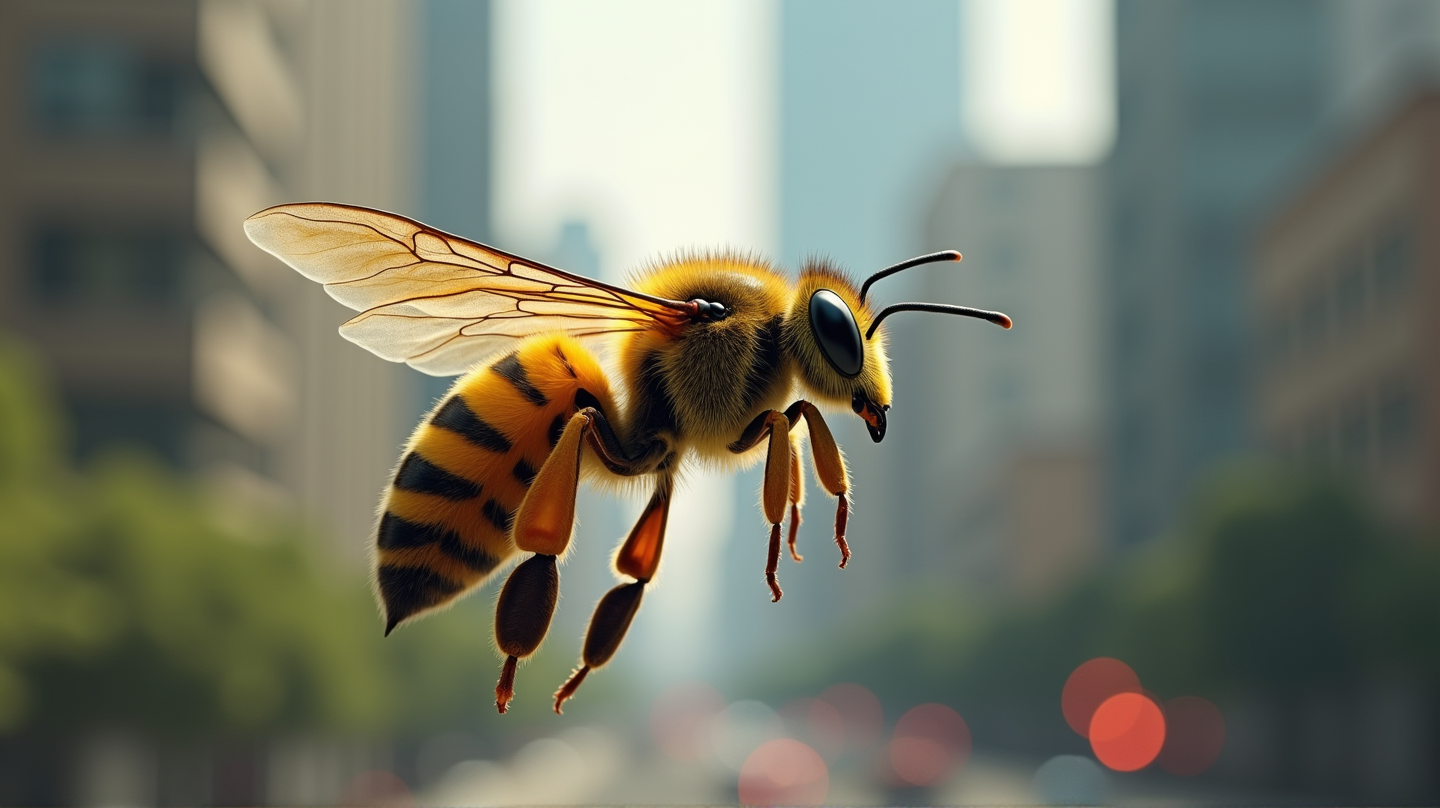In an astounding leap forward in technology that sounds like it’s plucked straight out of a science fiction novel, researchers from China have crafted a minute brain-controlling device capable of directing the flight of a real, live bee. This lightweight wonder weighs only 74 milligrams, making it the most feather-light brain controller ever created for insects.
Cyborg Bees and Their Futuristic Potential
The tiny brain chip is designed to cling effortlessly to a honeybee’s back and interacts directly with its brain. The chip utilizes three delicate needles to transmit electrical impulses, effectively guiding the bees’ trajectories with an impressive 90% command accuracy in lab settings. According to News9live, the initiative is headed by Professor Zhao Jieliang at the Beijing Institute of Technology, who envisions these ‘cyborg bees’ playing crucial roles in diverse operations—from military and surveillance tasks to emergency recue missions in tremor-devastated zones.
Advantages of the World’s Lightest Insect Brain Chip
Compared to previous models trialed on beetles and cockroaches, this new device boasts a far lighter structure, significantly reducing the burden on bees, thereby allowing them longer, less strenuous flight durations. Earlier endeavors, such as those by teams in Singapore, employed heftier chips that quickly depleted the insects’ energy reserves. The groundbreaking use of ultra-thin polymer materials for circuit printing contributes to this achievement, creating circuits as flexible as an insect’s wings.
Expanding Horizons Beyond Bees
The research also extends beyond honeybees to include cockroaches, demonstrating that the chip can be equally adept at controlling these creatures. During tests, the roaches could navigate designated pathways with the same technique. However, some challenges remain, such as the need for external power sources for prolonged operations and the natural fatigue of insects after sustained electronic interaction.
Sizing Up the Ethical Implications
As remarkable as this invention is, it naturally raises significant ethical queries, particularly about privacy and biological sovereignty. The concept of unobtrusive ‘mini spy drones’ that can infiltrate almost any environment undetected prompts privacy concerns across various sectors. Zhao’s team, however, is committed to harnessing this technology for positive, life-saving applications.
A Glimpse Towards A Future with Bio-Robotic Synergy
The project illustrates a profound exploration into uniting natural biological hosts with state-of-the-art technology, aiming to leverage the natural adaptations of these organisms for innovative purposes. “Insect-based robots inherit the superior mobility, camouflage capabilities, and environmental adaptability of their biological hosts,” as Zhao’s team elucidates in their study. This innovation shines as a beacon of what harmonious human advancement and environmental respect may yet hold.
